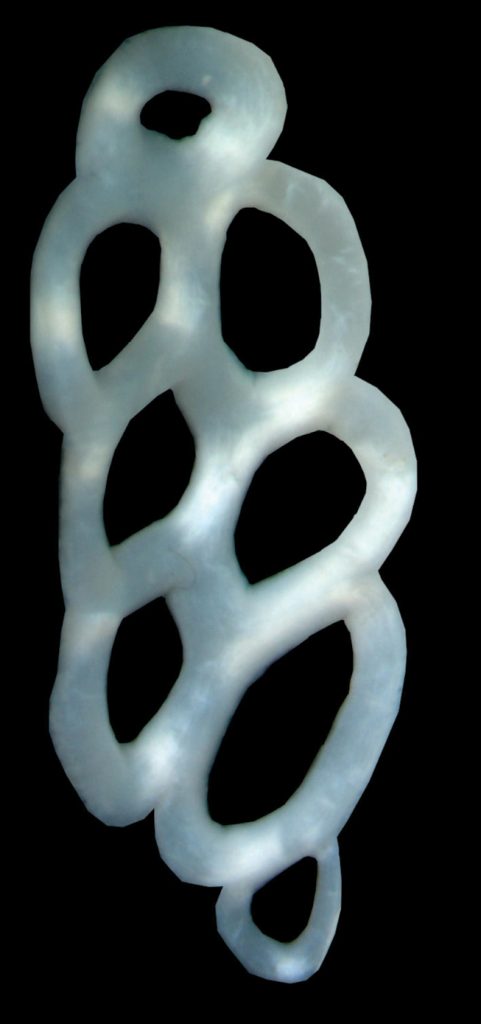
Pensoft is delighted to announce that a new species of semi-slug was named after our CEO and founder, Prof. Lyubomir Penev.
Endemic to Vietnam,Ostracolethe penevi was described as new to science in a study in ZooKeys’ 1249th issue.
“The new species is named after Prof. Dr Lyubomir Penev for his incredible contribution to the reputation of Bulgarian science and his tireless, friendly support over the years,” the authors write in their paper, which was published in Pensoft’s flagship, open-access zoology journal.

In 2023, Dr. Ivailo Dedov of the Institute of Biodiversity and Ecosystem Research at the Bulgarian Academy of Sciences, Prof. Quang Manh Vu of the Hoa Binh University in Hanoi, and Dr. Tuan Trieu Anh of Vietnam’s Hung Vuong University collected slugs and semi-slugs of the superfamily Helicarionoidea in northern Vietnam.
“About 15 km from Sa Pa town in northern Vietnam, a pure stream of water cascades down from a mountain cleft about 200 meters high. From a distance, the waterfall appears like a silver-white silk ribbon shimmering amid the immense greenery, which is why it is called the ‘Silver Waterfall.’ It marks the beginning of the Ô Quy Hồ Pass—a meeting place for nature lovers, adventurers, and creative spirits alike,” says prof. Vu.

“In my second expedition to Vietnam we managed to collect many slugs and semi-slugs (that have a reduced shell which can’t fit their entire body). Later, in Sofia, when we started identifying our specimens, two species grabbed our attention with their unusual anatomy,” Dr. Dedov explains.

“I dissected a specimen that turned out to be a new species, probably of the genus Ostracolethe. In it, I found an unusual structure consisting of eight interconnected ‘Olympic rings’ in two rows whose functions for now remain unknown.”
“When I found out I had a new species, I had no hesitation on the name: Ostracolethe penevi. I had been looking forward to naming a curious species after my friend and PhD supervisor Prof. Lyubomir Penev, a man who made the world look up to Bulgarian science and also changed the way taxonomy and biodiversity information is published worldwide; someone who has helped me a lot through the years.”
“This newly described species deserves a name that reflects the generosity of nature, the advancement of science, and the enduring friendship between Vietnam and Bulgaria,” Prof. Vu adds.
Ostracolethe penevi is about 4 cm long and lives in the leaves of moisture-loving shrubs and grasses. Its slender body is mostly light-yellowish-ocher in colour, with gray-blackish stripes on the neck and yellowish tentacles.

“An unusually structured species dedicated to an extraordinary personality!,” concludes Dr. Dedov.
The other semi-slug the research team explored in their ZooKeys study, Ostracolethe fruhstorfferi, can actually change colours, not unlike a chameleon.
“While I was trying to take a good photograph of a live specimen, placing it on different kinds of surfaces, I found the animal changed colouration depending on the substrate,” Dr. Dedov explains.
“When a specimen was photographed on a stone surface it looked whitish transparent, and only melanin kept the pattern of colouration. The very same specimen photographed on tree bark became more colourful, and pinkish, ocher, brownish, and yellowish colours appeared,” the team write in their paper.

“It turned out that I was observing the first land snail with what is called metachrosis: changing colours for the purpose of blending in with the environment and passive protection,” says Dr. Dedov.
The research team suggests this might be possible thanks to a torus-toroid (doughnut-like) structure described in literature as “enigmatic and with unknown functions.”
“Congratulations on the discovery and formal description of a new species for science—Ostracolethe penevi—named in honor of Prof. Penev, a sincere and esteemed friend of Vietnam, as well as the Founder and CEO of Pensoft,” says Prof. Vu in conclusion.
Research article:
Dedov I, Manh Vu Q, Trieu Anh T (2025) Slugs and semi-slugs of the superfamily Helicarionoidea (Gastropoda, Stylommatophora) collected in North Vietnam during the 2023 Bulgarian Zoological Expedition, with emphasis on the genus Ostracolethe. ZooKeys 1249: 317-338. https://doi.org/10.3897/zookeys.1249.155684

